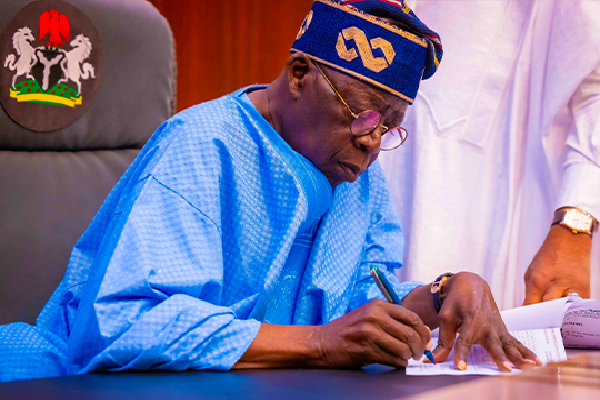Presidential palliatives: Economist warns against corruption in implementation
An economist, Marcel Okeke has warned that corruption could derail President Bola Tinubu’s recently announced palliatives if not properly monitored and implemented, such that whatever ‘goodies’ that come the way of the state and local governments from the Centre would usually end up as ‘political patronage’ to be dispensed along party lines.
This is just as he commended the Federal Government on the Taiwo Oyedele led Committee on fiscal policy and tax reforms, saying it will bring new revenue-generation ideas for Nigeria.
He further expressed optimism that the committee would work towards harmonising taxes to provide relief for companies and individuals.
Okeke made the observations at the well-attended monthly forum of the Finance Correspondents Association of Nigeria held in Lagos, recently.
The President recently announced palliatives to cushion the effect of recent policy reforms on poor households and businesses.
Of the ₦500 billion palliative (0.25% of the GDP), ₦75 billion is to be disbursed for manufacturing support; ₦125billion for Micro, small and Medium scale Enterprises financing; ₦100billion for CNG buses, and ₦200billion for agricultural intervention.
While discussing the 2023 half year economic outlook, Okeke however, said that a critical look at the palliative measures show that they are a rehash of what the previous
administration did.
He submitted that what the Nigerian economy badly needed at this time is a stimulus package rather than mere palliatives that are likely to end up in the wrong hands and pockets.
Palliatives, he said, (especially cash transfers) are unearned, unproductive ‘transfer payments’ that do not make for any economic progress.
The forum has as its theme; “The Impact of Post-Inauguration Fiscal, Monetary Policy Reforms on Nigeria’s Macroeconomic Environment.”
Okeke emphasised the need to diversify the economy by developing sectors like agriculture and manufacturing, reducing dependence on oil.
He highlighted other factors affecting the Nigerian economy, such as the coup in Niger Republic, implementation of palliatives, insecurity, and oil theft.
Okeke, also a sustainability expert and consultant on business strategy, noted that the depreciation of the Naira had led to significant foreign exchange losses for companies.
“It is a challenge because those losses are incurred because of the fluctuations of the Naira, or the unification of exchange rates.
“And I have not seen anything the government is trying to do to check many of these companies which are conglomerates and multinationals, who play across the globe.
“So, if they have currency loads or facilities, what is happening to the Naira is what is reflected in the reports that they are coming up with.
“As long as the fate of the Naira is such that it keeps sliding against major currencies of the world, this is the kind of report that they are going to have at the end of the year,” he noted.
The economist calls for quick government’s intervention to prevent further company collapses.
He cited the exit of GlaxoSmithKline as an example, attributing its inability to repatriate revenues and dividends to foreign exchange shortages.
Okeke said that he hoped that GSK’s departure would not trigger a trend of other companies leaving as well.
He said, “It came to my knowledge that in a couple of five years, they have been unable to repatriate their revenues and dividends and that has been the fate of other major multinationals because of the shortage of foreign exchange in the economy.
“So, when you sum all those things, that will show you how soon this economy will be doing well or how far it will not be doing well.
“I pray that the exit of GSK will not turn into bandwagon for others to also leave.’’
On security, he observed that the government’s efforts are commendable but more needs to be done because “we have to be alive for us to do anything. For foreign investors to respond to our policies by way of investment, they have to also be alive. The activities of bandits, Boko Haram among others are existential threats. Also, the judgement of the presidential election tribunal will will determine a lot of things in the economy going forward.”


